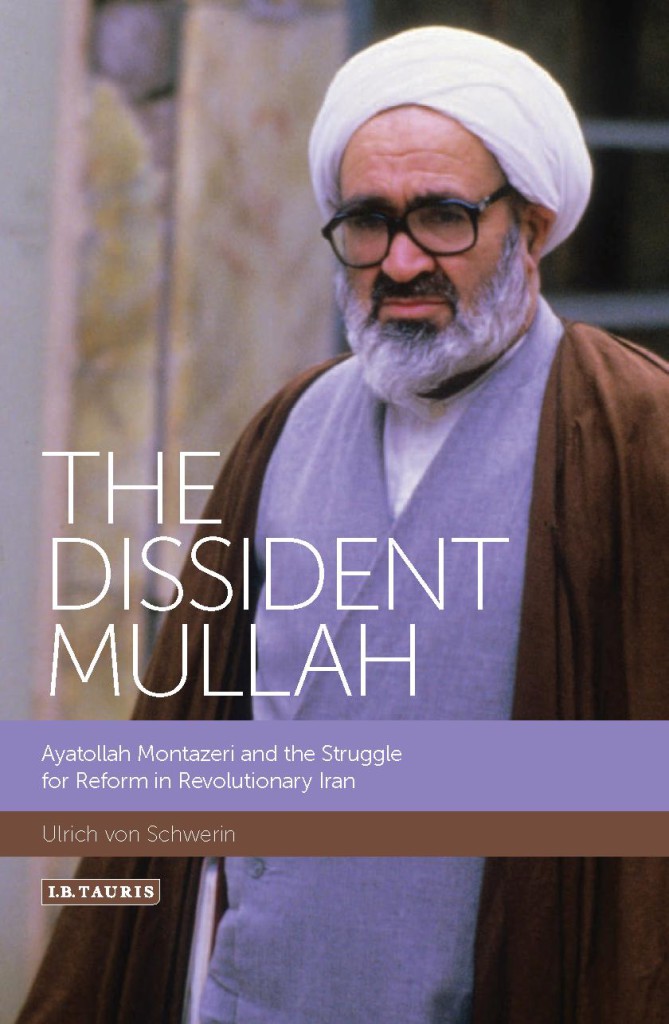Wissenschaft
The Iranian cleric Ayatollah Montazeri (1922-2009) played an integral role in the founding of the Islamic Republic in the wake of the Iranian Revolution of 1978/9. Yet at the time of his death, Montazeri was considered one of the Islamic Republic’s fiercest critics. What made this man, who was once considered the leading advocate of the state doctrine of the ‚Guardianship of the Jurist‘ (velayat-e faqih) and the designated successor to the supreme leader Ayatollah Khomeini, change his views? How did his political theory incorporate issues such as civil rights, pluralism and popular participation? And what influence did his ideas have on others? This book answers these questions by examining the evolution of Montazeri’s political thought over the course of five decades, and studies his role in the discourse on religion and politics in Iran.
Starting with his entry into politics during the protests against the reforms in 1963, The Dissident Mullah follows Montazeri’s political and social activism against the Shah which led to his arrest, exile and imprisonment. Only released on the eve of the revolution, he was elected as the chairman of the assembly to draft the new constitution. While Khomeini remained silent on the future form of the system, Montazeri pressed for the key institutions to be placed under the control of the revolutionary leader. Yet, during the following years he was forced to recognise that this concentration of power in the hands of the leader led to a situation far removed from the Islamic utopia he had initially imagined.
Chosen as the designated successor to Khomeini in 1985, Montazeri set out to develop an alternative reading of velayat-e faqih, limiting the powers of the leader. As his relation to his long-time friend and mentor Khomeini became increasingly strained by conflicts over foreign policy, political reforms and the treatment of political prisoners, he was finally deposed in 1989. Banned from politics under the new leader Ayatollah Khamenei, Montazeri nevertheless continued to intervene in the debate on reform and to refine his ideas. By offering a comprehensive examination of this dissident ayatollah’s political and social thought, the book sheds a new light on some of the most crucial events and vital protagonists of recent Iranian history.
Published at I.B. Tauris, May 2015
Review „A Principled but Uncertain Man: The Life of Iran’s ‚Dissident Mullah'“ by Gareth Smyth in the Guardian, 23. October 2015 (translated into Persian by Voice of America)
Mehdi Hashemi and the Iran-Contra-Affair
In November 1986 a Lebanese newspaper revealed the secret arms-for-hostages deal between Tehran and Washington that subsequently became known as the Iran-Contra-Affair. The newspaper had been tipped off by friends of the Iranian radical Mehdi Hashemi who had been arrested shortly before in Iran. This article explores the link between the arrest of the ardent supporter of the then deputy leader Hossein-Ali Montazeri and the secret talks with the US government. The article will show that his arrest was not only an attempt of the then dominant faction around Ali Akbar Hashemi Rafsanjani to bring the future leader Montazeri under its control, but also an attempt to eliminate a rival actor opposing the rapprochement with the USA and threatening to disrupt the arms-for-hostages deal.
Published in the British Journal of Middle Eastern Studies, April 2015
Die Bedeutung des Islams zur Legitimation des Staates in Afghanistan: Die Islamisierung der Politik als Folge der Legitimationskrise des Staates
Die neue afghanische Verfassung von Januar 2004 gründet die Legitimität des Staates auf dem Respekt der demokratischen Prinzipien und der islamischen Werte. Der Erfolg dieser ‚Islamischen Demokratie‘ hängt von der Fähigkeit der Regierung ab, eine liberale Auslegung des Islam durchzusetzen, die vereinbar ist mit den Prinzipien der Demokratie. Doch da die islamistischen Kräfte weiter bedeutenden Einfluss auf die Politik haben, und Präsident Karsai durch seine Unfähigkeit geschwächt wurde, sein Versprechen von Sicherheit und Entwicklung zu erfüllen, hat er zunehmend versucht, seine Legitimität durch die Islamisierung des Staates zu stärken.
Publiziert in Asien, Januar 2008, S. 24-36
Die Muttahida Majlis-e Amal: Ursachen des Wahlerfolgs der Islamisten bei den pakistanischen Wahlen im Oktober
Die Islamistischen Parteien sind aus der pakistanischen Parlamentswahl von Oktober 2002 überraschend als drittstärkste Kraft hervorgegangen. Nachdem sie in der Folge des 11. Septembers zunehmend unter Druck geraten waren, hatten sie sich erstmals in der Geschichte Pakistans unter Überwindung ihrer politischen und ideologischen Differenzen zu einem Wahlbündnis zusammengeschlossen. Ihr Erfolg bei der Wahl ist vor allem einer radikal anti-amerikanischen Strategie und einer klugen Instrumentalisierung des paschtunischen Nationalismus zu verdanken. Ihr Wahlkampf zeugte aber auch von einem pragmatischen Ansatz: Sie scheinen realisiert zu haben, dass allein eine nicht-ideologische Politik ihnen erlauben kann, ihre traditionelle Wählerschaft zu erweitern.
Publiziert in Asien, Oktober 2005, S. 76-83

